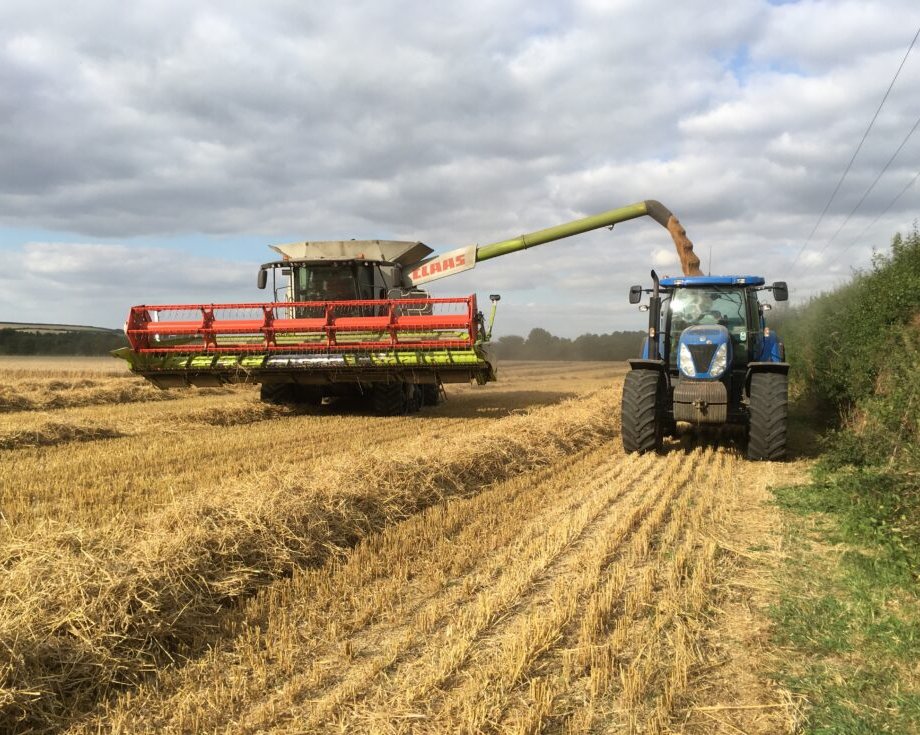Rethink – Does COP matter to Agriculture?
Jan. 3, 2023
Posted in Audio, Sustainability

When asked for a farmers view of COP for the Radio 4 rethink episode (link here), I found myself thinking “buzz words and policy wonks”, and really struggled to find specific concrete examples of how and where it has made a difference. The sceptic in me leapt straight to thinking it is a platform for voices to send messages about their ideals, virtue signal and maybe even a hook to hang the promo of their latest book or paper on.
Upon closer examination, and putting aside all the above, I concluded that COP is much more soundbites and mood music which contribute to a policy backdrop, maybe something helpful to point at when the “rules” that govern agriculture in the UK may appear incoherent. The coming-together of people who care to get things done in-person is critical; whether it requires the circus of NGO’s, Commercial interests and other single-issue groups is a moot point for me.
I came back to the fact that all the progress so often falls apart when it is spun out of the COP bubble into the media for the masses, inevitably as too-short, binary soundbites. Ultimately governments must work out how good intentions, slim promises and expensive programme delivery survive the impact with reality.
All good intentions have consequences; some intended, some unintended; some positive, some negative. Synthetic nitrogen fertiliser is probably the most interesting example of this. We could argue over the numbers all day long, but the combined impact of Norman Borlaug who delivered high yielding wheats and Haber-Bosch who created the process of stripping nitrogen out of air to create ammonia (initially as an oxidising agent for use in weapons) has been abundant and ever cheaper food (grains especially) supporting a fast-growing global population from 2bn to 9bn in a century.
The liberation of energy from long stored hydrocarbons into fertiliser to support abundant food production has been a story of both success and impact: nothing comes for “free” or without cost. The carbon cycle that once maintained planetary equilibrium cannot draw down as much CO2 as is being released by all forms of human fossil fuel use, including that used in agriculture.
So where do the answers lie? For me I see a couple of critical areas which can help to drive greener production of food. Firstly, green ammonia, the use of renewable energy to fuel the extraction of Nitrogen from air. To move fertiliser production away from fossil fuels as a raw material. There is work being done on this, but the investment required to bring it to commercial viability should be a priority for all governments. Production also needs to work at both national and regional levels; unless the focus is put on this early in the development phases, we will still be wasting valuable resources pulling volumes of fertiliser around the world in boats and trucks. Green ammonia is not a “cure all”, nothing in the natural world is that simple. As farmers reduce fertiliser use and push the levels of carbon in their soils higher, those soils become more alive with microbes and organisms, which in themselves respire, and create more CO2: we are potentially back to negative consequences even from positive impacts, and maybe we need to accept that food production will always bring about some carbon emissions, even if much reduced.
Second – Voluntary Carbon Markets. I can already see them being set up for the benefit of banks and financial institutions, a juicy new stream of income, based predominantly on the fake it until you make it mantra of start-ups. These markets will drive land use change. The impact of putting CO2 in to the “battery” of trees versus using land for food production is yet unknown. The money markets seem to have forgotten that carbon is cycled, and therefore “unstable” in its very nature. This leaves us with a market which is currently not only wide open to abuse, low on inherent integrity and with the potential to be fundamentally unfair to the communities delivering and living with land use change. This all seems OK to people who are making money (see the power of UK food retailing as an example of this) until the point at which it squeezes food supplies. If UK agricultural production is squeezed out by afforestation, we ultimately end up with “carbon leakage” (exporting the carbon footprint of production whilst importing food). Policy makers in the UK should be looking at both market regulation and what UK land use needs to be to feed both people and provide for nature in a balanced, healthy, and just way. Farmers are hugely innovative and agile and will flex to policy where possible. It is also true to say that for agriculture to best deliver greener food and fibre, they need a seat at the table in policy design. The design of markets is also key: where markets are unfair, lack transparency, and are not prepared to pay a fair price for the product including that of environmental impacts or benefits, the whole system will fail to deliver.
Farmers tend to internalise the responsibility of food production, moving it in their minds from a business to a moral obligation. The moral obligation to feed nations is with governments, which brings me back to the fact that at the core of policy making, there must be the will to ensure that policy and investment decisions are focused on practical delivery when those ethereal COP commitments impact the reality of agriculture.
These are all symptoms of a broken system. One in which policy doesn’t take a long view. Where government is lacking understanding of both the first principles of science and practicalities. Short term Carbon Capitalism must not be the enemy of Justice to communities, the planet, and future generations of farmers.